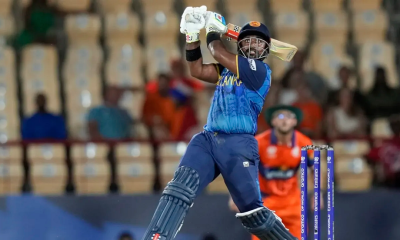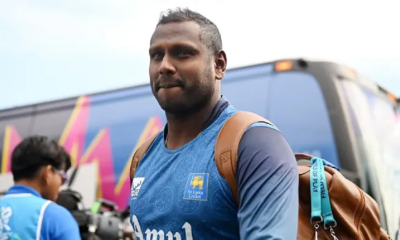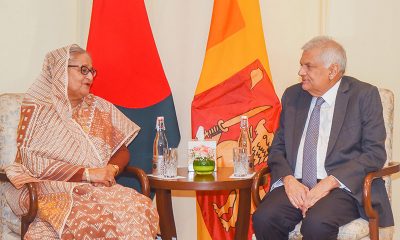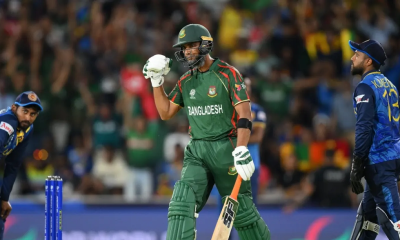Features
Sri Lanka’s Crisis – The Citizen Factor
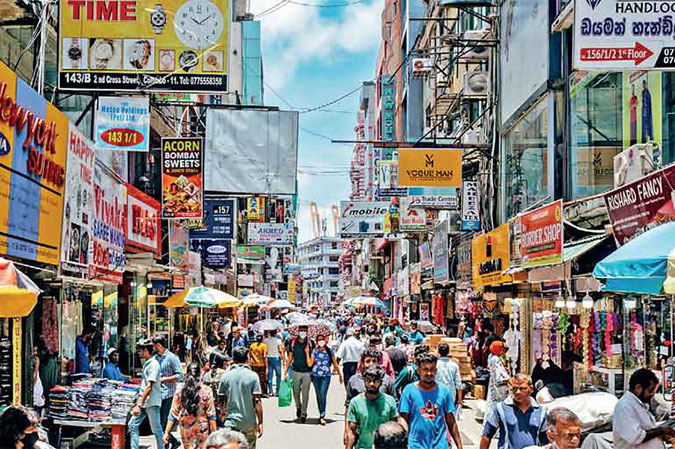
Sri Lanka’s crisis is the outcome of unsustainable policies, that pandered to the unrealistic expectations of an entitled citizenry, rich and poor alike.
Anila Dias Bandaranaike, Ph. D.
Background
A year ago, Sri Lanka was in dire crisis. The government had no money and the country had no foreign reserves. The country was without essential medicines, staple foods, transport fuel, cooking gas, electricity and fertiliser. Consequently, livelihoods were lost. Yet, the majority of Sri Lanka’s elected representatives, the Executive and 225-strong Legislature, seemed impervious to the crisis.
Eventually, the efforts of a peaceful people’s “Aragalaya”, supported by an entire population, rid the country of an elected President, Prime Minister and Finance Minister, a Central Bank Governor and a Secretary to the Treasury, whose policies had sent the country reeling into the worst economic crisis of independent Sri Lanka. Sadly, that magnificent effort was hijacked by violent elements, who used arson and terror to reduce the country to near anarchy for their own devious ends.
That is now water under the bridge. A year later, Sri Lanka is limping back to some semblance of normalcy, under the stewardship of a President who did not have citizens’ votes to enter Parliament in the last election. An experienced politician, he is effectively there by default, having been in the right place at the right time, by taking on a premiership which others avoided.
Many people now opine that he is the best option for the country at this time. And so, he shines in the mud of 226 representatives the people themselves elected, but did not hold accountable. Meanwhile, the underlying structural crises in several areas – food security, national debt, public finance, state services, labour market – and corruption remain.
Who is Responsible for the Crisis?
So, whom do we blame? Blaming others is easiest.
Some say “the Rajapaksas”. But they, and their team, were merely a politically savvy family, self-serving to the end, with neither acumen nor ability to steer the country forward. Their only objective was to further their own ambitions for money, power and position, which they did, for a while, with unimaginable success.
Some go back in time and say “that old fox, JRJ”, who infamously created an Executive Presidency and an electoral system based on District proportional representation. Today, we face the adverse outcomes of 40 years of an all-powerful presidency in incompetent or unprincipled hands, and of electorates too large to hold Members of Parliament accountable to their voters.
Neither JRJ nor the Rajapaksas could have wreaked such havoc without an entitled citizenry with unrealistic expectations, who relied heavily on unsustainable policies and political patronage, rather than their own efforts, for advancement. So, let us turn the spotlight on ourselves, Sri Lanka’s citizens.
Entitled Citizens and Unrealistic Expectations
Most citizens, rich or poor, educated or not, balk at paying taxes. But their expectations of governments are four-fold.First, expectations of free state services (education, health). Second, expectations of state handouts ranging from under-priced utilities (electricity, water, fuel, cooking gas) to subsidies for consumption (bread, transport) and business (fertiliser, plantation crops).
Third, expectations of random low interest loans and tax breaks (tourism, manufacturing, agriculture, film industry). Citizens expect governments to magically finance these. Do they know that taxes or loans finance government expenses?
Fourth, expectations of political patronage to provide jobs, school admissions, job transfers or promotions and to facilitate business contracts, unrelated to the abilities of recipients. While politicians expect and citizens provide returns for such favours, Sri Lanka can never become a merit-based system of professionals.
A Collapsed System, Entitled Politicians and the Reality Gap
Our system of government has collapsed. We have forgotten that elected representatives exist to serve the people’s needs. Politicians thrive at marriages, funerals and almsgivings. “Selfies” taken with political leaders flood the internet. Instead of holding politicians accountable for discharging their responsibilities, citizens pay them homage, thereby creating an entitled breed.
This attitude allows politicians to act above the rules applicable to citizens – to halt traffic and exceed speed limits, so they can proceed uninterrupted on busy roads; to break queues for items in short supply, a separate system to obtain scarce fuel – only because citizens allow it. Hence, most politicians, in government or opposition, become accustomed to such acquiescence. Many come to expect it and the ensuing perks.
How many elected politicians pay for personal expenses in a store, restaurant, hotel or hospital? Consequently, they have little experience of the day-to-day life citizens face – traffic jams, transport delays, queues, finding essentials in short supply, paying for family treats outside the home. So how can they be expected to understand people’s needs? They become increasingly isolated from the ground reality, relying heavily on those who have their ear.
In times gone by, apolitical public officials with experience and acumen advised their political leaders. They provided constructive criticism. Leaders listened. Today, in a highly politicised service, blind loyalty takes priority over ability. With criticism perceived as disloyal, senior public officials remain fearfully silent. Instead, the ears of the leaders are hijacked by others, the “wannabees’, with their own agendas for position, power or business advantage. Therein lies the dilemma.
Dependence on Government and Unsustainable Policies
At independence, Sri Lanka had the advantages of geographical location, natural resources and high human development indicators. Yet, with unrealistic dependence on government, in time the state sector ballooned. Today, overstaffed state institutions with overlapping functions abound, with no plan for rationalisation. In 70 years, Sri Lanka fell far behind, the outcome of mismanagement and low productivity.
More than 65 state institutions, funded by taxes and loans, “support” agriculture. Yet, in pre- COVID 2019, 2.2 million people were food insecure. Today, agriculture absorbs 28% of workers, but contributes only 8% of economic output, with labour productivity well below other sectors. Until the crisis, village farmers and highly influential plantation companies, alike, relied on government subsidies for fertiliser, replanting and transplanting. Despite so much “support”, farmers still depend on imports and the Department of Agriculture for seeds to grow vegetables, unable to produce enough on their own.
Thirty years ago, the doyens of corporate management took over 23 regional plantation companies holding tremendous land assets. Potential for long-term investment – in higher value-added tea and rubber, high-end fruit and vegetable cultivation and horticulture, forestry, high-end tourism, hydro and dendro power – was endless. Yet, who used such opportunities? Many continued, as from British times, to produce primary products from plantation crops for export. When international prices were high, they paid good dividends and bought company vehicles, and when low, they requested government handouts.
Sri Lanka opened manufacturing and export processing zones in 1977 for foreign direct investment (FDI). Non-sector-specific, long-sighted policies for essential infrastructure, simplified procedures and a stable socio-political environment, would have encouraged long-term FDI with technology transfer.
But, influenced by self-interest lobby groups, short-sighted policies for tax holidays and low tax rates for specific sectors encouraged mainly short-term FDI, which terminated with the tax holidays. Consequently, many countries in the region have overtaken Sri Lanka in attracting FDI. Meanwhile, despite “support” from GCEC (now BOI), EDB and several other state institutions, procedures remain cumbersome. Exports still depend on handouts like GSP + to be viable.
In Tourism, the internet provides instantaneous information to a new generation of clientele, who prioritise unique, new travel experiences and environmental concerns. Catering to such demand are highly successful tourism ventures in the SME sector, that preserve the environment and show-case Sri Lanka’s cuisine and incredible biodiversity, maintaining low overheads. Yet, old-school corporates and “new money” investing in low-end tourism, have greater negotiating access and influence over state institutions which “support” tourism, rather than these SMEs.
These corporates own large resorts with high overheads around the country. Those were successful with global travellers of 40 years ago. Many such resorts cater to two-week budget holiday-makers with limited disposable income, making their profits on tourist volumes, rather than high value-addition. They pay dividends in good times and ask for handouts in bad! At a public discussion on the disastrous 2020 Budget, the Chairperson of The Hotels Association of Sri Lanka, first commended “business incentives”, rather than handouts, given in the Budget, and, in the next breath, asked for a government grant or interest-free loan to pay their hotel employees during COVID – a handout!!
The concept of risk versus return is unknown in Sri Lanka. The philosophy has been to spend lavishly in good times and get state bailouts during bad. Rather than raising productivity, wages and professionalism, we continue to expect government favours and handouts to succeed. Some, who believe that “who they know is more important than what they know”, are ready to stroke egos to push personal agendas. Those with integrity and no personal agendas, remain silent. Perhaps they know, from experience, that constructive criticism will not be heeded, in this toxic environment. Without their voices, like those before him, our leader becomes increasingly isolated from the ground reality.
Questions
So, what must be done?
How do those with the acumen and integrity, get leaders to heed constructive criticism?
How can public officials attain, and be made responsible and accountable for key positions, on merit?
How do businesses and citizens learn that a country cannot develop on handouts and personal favours?
How do businesses and citizens learn that taxes are needed to finance state services?
How do politicians learn to serve citizens, not themselves?
How can citizens learn to make politicians accountable, not entitled?
Sri Lanka has only temporarily and superficially overcome the crisis we suffered. We need to address the above, to permanently rise from it.
The author is a former Assistant Governor and Director of Statistics of the Central Bank of Sri Lanka. She also served as a member of the Independent Delimitation Commission of Sri Lanka.
Features
2025 Budget: Challenges, hopes and concerns
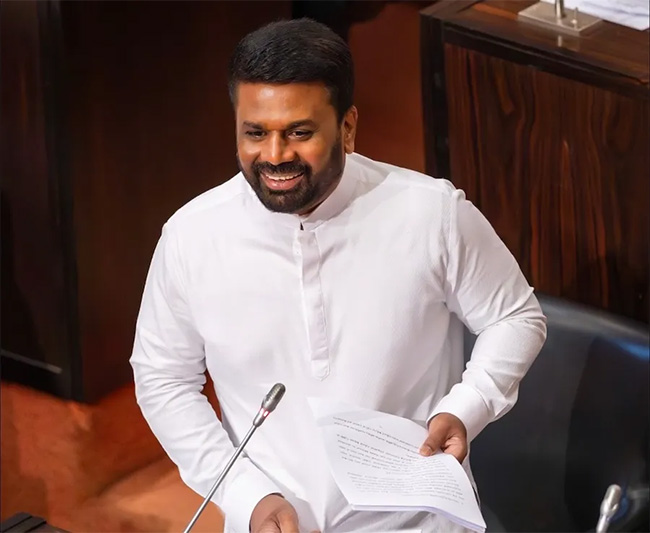
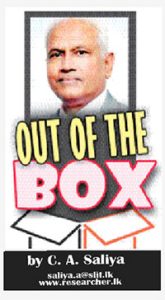 Sri Lanka’s recent government budget has sparked both hope and concern. While some see it as a positive step toward improving the country’s economy, others worry about whether the government’s proposals can be successfully implemented. This analysis explores the budget’s approach and what it could mean for the country’s financial future.
Sri Lanka’s recent government budget has sparked both hope and concern. While some see it as a positive step toward improving the country’s economy, others worry about whether the government’s proposals can be successfully implemented. This analysis explores the budget’s approach and what it could mean for the country’s financial future.
Credit Rating Improvement and What It Means
Fitch Ratings recently upgraded Sri Lanka’s credit rating, moving it from a risky “Restricted Default” (RD) to a “CCC+” rating. This shows that the country’s financial situation is improving, though it still faces a high risk of default. The government aims to increase its revenue, especially through trade taxes and income tax, but experts warn that the success of these plans is uncertain, particularly when it comes to lifting restrictions on imports.
Economic Democracy and Market Regulation
The government claims that this budget is based on the idea of “economic democracy,” aiming to balance market forces with government control. While it promises fairer distribution of wealth, critics argue that it still relies on market-driven policies that may not bring the desired changes. The budget seems to follow similar strategies to past administrations, despite the government’s claim of pursuing a new direction.
The current government, led by a Marxist-influenced party, has shifted its approach by aligning with global economic institutions like the International Monetary Fund (IMF). This represents a departure from its previous, more radical stance. The government’s vision focuses on rural development, support for small businesses, and an export-driven economy, continuing strategies from previous administrations rather than implementing drastic changes.
Stability and Continuity in Policy
One of the more positive aspects of the budget is its consistency with the fiscal policies of the past government. Sri Lanka’s economy has suffered from sudden policy changes in the past, often triggered by political transitions. By maintaining a steady course, the current government seeks to ensure stability in the recovery process, despite criticisms from political opponents.
Sri Lanka continues to face significant financial challenges, including a large budget deficit. The government’s spending in 2025 is expected to exceed its revenue by about LKR 2.2 trillion, leading to a deficit of around 6.7% of GDP. To cover this gap, the government plans to borrow both locally and internationally. However, debt repayment remains a major concern, with billions needed to settle existing obligations.
Tax Revenue and Public Spending Issues
Sri Lanka’s tax collection remains critically low, which worsens the country’s financial troubles. Tax evasion, exemptions, and inefficient administration make it hard to collect sufficient revenue. The government has raised VAT to 18% to boost income, but this could increase inflation, further harming families’ ability to afford basic goods. Additionally, corruption in public institutions continues to drain state resources, preventing effective use of funds for national development.
The Auditor General’s Department recently uncovered financial irregularities in several ministries, reinforcing concerns over systemic corruption.
Sectoral Allocations, Budget Inequities and Falures
Despite claims of prioritizing social welfare, the government’s budget allocation for key sectors remains insufficient. For example, while the government allocated LKR 500 million to improve 379 childcare centers nationwide, this amount pales in comparison to regional standards. In neighboring Bangladesh, the government spends around USD 60 per child annually, while Sri Lanka spends less than USD 25. It’s unclear whether this allocation represents an increase in funding or just a reshuffling of existing resources.
One of the biggest criticisms of the budget is its failure to address the high cost of essential goods, going against promises made during the election. Prices for basic items like rice and coconut are still high, due to supply chain issues, rising fuel costs, and tax policies. The absence of targeted subsidies or price controls has led to growing public dissatisfaction.
Public sector salary adjustments are also a point of contention. The government plans to introduce salary increases in three phases, with the full benefits expected by 2027. However, much of this increase was already granted in previous years through allowances, meaning the adjustment is more about restructuring existing funds than providing real pay increases. This slow approach raises concerns about whether employees’ purchasing power will improve, especially with inflation still a pressing issue.
The government has also urged the private sector to raise wages, but past experiences suggest that private companies often resist such requests. Without formal agreements or laws to enforce wage hikes, there is uncertainty over whether employees will see real wage growth that matches the rising cost of living.
Neglecting Vulnerable Workers and Obstinate Behaviour
Another group left out of the budget’s plans is casual and contract workers, who were expecting improvements in job security and wages, particularly those earning below LKR 1,800 per day. Despite promises made during the election, these workers have not seen any significant changes, which raises doubts about the government’s commitment to improving labor rights and income equality.
The government’s handling of private sector wage increases has also been criticized for a lack of transparency. In a televised discussion, A government representative became visibly agitated when questioned about the date of the agreement with employers, displaying obstinate behavior and refusing to answer the opposition MP’s inquiry.
Review of the Banking Sector’s Role in Govt. Revenue and Economic Growth
The banking sector helps generate national revenue through taxes such as corporate income tax, value-added tax (VAT), and financial transaction levies. However, the claim that it contributed 10% to government revenue in 2024 needs to be understood in context. Past figures have shown fluctuations in financial sector taxes, influenced by economic conditions and fiscal policies. The government’s growing reliance on the banking sector for tax revenue could signal financial stress, and this situation warrants further analysis to understand its long-term sustainability.
While the Sri Lanka Bankers Association (SLBA) emphasizes banks’ support for implementing the government’s budget proposals, their ability to do so effectively depends on broader economic conditions, regulations, and financial stability. Sri Lanka has faced persistent economic issues like high public debt and inflation, which could hamper the ability of banks to help implement fiscal policies effectively. The real impact of the banking sector in driving economic growth remains uncertain, especially given factors like currency instability and a lack of foreign investment.
Digitization and Financial Transparency
The proposal to introduce Point-of-Sale (POS) machines at VAT-registered businesses aligns with global trends in digital financial integration. This move is expected to improve transparency, reduce tax evasion, and increase banking efficiency. Research has shown that digital payments can boost financial inclusion and reduce informal economic activities. However, Sri Lanka faces challenges such as limited digital infrastructure, cybersecurity concerns, and resistance from businesses that still prefer cash transactions.
More digital services could strengthen anti-money laundering (AML) controls, improve transaction monitoring, and reduce cyber threats. However, shifting to a fully digital banking system requires substantial investments in technology, regulatory alignment, and digital literacy among consumers.
Support for SMEs and Development Banking Initiatives
The creation of a Credit Guarantee Institute for SMEs is a significant step. Research shows that credit guarantees can reduce lending risks and improve SME access to financing. However, past state-managed financial programs in Sri Lanka have been inefficient, often involving politicized lending practices.
For these new initiatives to succeed, they will need transparent governance, careful credit risk management, and strong regulations….
Conclusion
Sri Lanka’s banking sector is crucial for economic stability and revenue generation, but the increasing fiscal demands and the push for digital transformation present both significant opportunities and risks. Policymakers need to avoid over-taxation that could stifle credit expansion and investment while addressing digital finance challenges like cybersecurity and infrastructure gaps. The 2025 budget underscores the nation’s vulnerable fiscal situation, where efforts for economic stabilization are hampered by public debt, corruption, and welfare constraints. Achieving sustainability requires comprehensive tax reforms, better public expenditure management, and stronger anti-corruption measures. Without these reforms, Sri Lanka faces prolonged economic hardship, rising inequalities, and diminishing trust in governance. The budget also reflects a blend of ideological transformation and economic pragmatism, with policies largely aligning with past approaches. Fitch Ratings’ cautious optimism signals the potential for recovery, contingent on successful policy implementation. Ultimately, policy continuity is seen as Sri Lanka’s best bet for navigating fiscal uncertainty and achieving economic stability.
(The writer, a senior Chartered Accountant and professional banker, is Professor at SLIIT University, Malabe. He is also the author of the “Doing Social Research and Publishing Results”, a Springer publication (Singapore), and “Samaja Gaveshakaya (in Sinhala). The views and opinions expressed in this article are solely those of the author and do not necessarily reflect the official policy or position of the institution he works for. He can be contacted at saliya.a@slit.lk and www.researcher.com)
Features
Rethinking cities – Sustainable urban innovation

by Ifham Nizam
Dr. Nadeesha Chandrasena is an urban innovator reshaping the landscape of sustainable development. With a background that spans journalism, banking, and military engineering, she brings a unique perspective to urban planning and environmental resilience.
Her work integrates cutting-edge technology with human-centered design, ensuring that cities of the future are not only livable but also adaptive to climate change and rapid urbanisation.
In this interview with The Island, Dr. Chandrasena shares insights into her journey—from her early days in journalism to pioneering the Smart Drain Initiative, a groundbreaking infrastructure project addressing urban drainage inefficiencies. She discusses the critical role of community engagement, the challenges of balancing innovation with political realities, and the urgent need for sustainable urban solutions in Sri Lanka and beyond.
Her story is one of relentless curiosity, problem-solving, and a deep commitment to building better cities. As she puts it, “Urbanisation is inevitable; our challenge is to shape it in ways that are inclusive, sustainable, and forward-thinking.”
Urbanisation is one of the defining challenges of the 21st century, and few understand its complexities better than Dr. Chandrasena. A trailblazer in sustainable urban development, she has dedicated her career to bridging the gap between technological innovation and environmental sustainability. Through her work, she emphasises a crucial message: cities must evolve—not just grow.
From Journalism to Urban Innovation
Dr. Chandrasena’s career path is anything but conventional. Beginning as a journalist, she honed her skills in field research and community engagement, which later became instrumental in her work as an urban planner. “Journalism taught me how to listen to people’s stories and understand the realities on the ground,” she explains. This background helped her develop urban solutions rooted in real-world insights rather than abstract theories.
Her transition into urban innovation was fueled by a deep-seated passion for environmental resilience. After a stint in banking and serving in the Sri Lanka Army Corps of Engineers, she pursued town and country planning, ultimately integrating her diverse experiences to address urban challenges holistically.
The Smart Drain Initiative: A Game Changer in Urban Infrastructure
One of Dr. Chandrasena’s most groundbreaking contributions is the Smart Drain Initiative—a next-generation urban drainage system designed to combat flooding and waste accumulation. Implemented in areas like Balapola and Ambalangoda, this technology incorporates IoT-based monitoring, predictive maintenance, and automated waste filtration to enhance resilience against climate change.
“Storm drains are often neglected, but they are the foundation of a city’s flood resilience,” she says. By modernising drainage infrastructure, her initiative is setting a precedent for cities worldwide to rethink their approach to urban water management.
Livability as the Core Urban Challenge
For Dr. Chandrasena, urban planning is not just about infrastructure—it’s about people. She identifies livability as the root problem that must be addressed in city planning. “Congestion, pollution, lack of green spaces, and inefficient waste management are all symptoms of poor urban planning,” she explains. Her work focuses on designing cities that prioritise well-being, accessibility, and sustainability.
Sri Lanka, in particular, faces unique challenges due to rapid urbanisation. With cities like Colombo struggling to accommodate a massive influx of commuters, Dr. Chandrasena advocates for affordable housing solutions near economic hubs and improvements in public transportation. “A city’s economic success should not come at the cost of its residents’ quality of life,” she insists.
Technology and Community Engagement: The Future of Urban Development
Dr. Chandrasena sees technology as a powerful tool for fostering inclusive urban development. From using social media for community consultations to deploying smart infrastructure, she believes digital solutions can democratise urban planning. “We need to move beyond traditional engagement methods and empower people through accessible technology,” she says.
Her leadership philosophy reflects this inclusive approach. Through initiatives like the MyTurn Internship Platform, she mentors young professionals, encouraging them to take an active role in shaping the future of cities. “Leadership is not about authority—it’s about creating opportunities for collaboration,” she adds.
Global Urban Challenges and the Need for Collaboration
Urban issues are not confined to national borders. Dr. Chandrasena highlights the importance of global partnerships, citing the twin-city concept as a model for knowledge exchange. By pairing cities with similar challenges—such as Galle, Sri Lanka, and Penang, Malaysia—municipalities can co-create solutions that address both local and global urban challenges.
Her work has not gone unnoticed. She recently won Australia’s Good Design Award for Best in Class Engineering Design, a testament to the impact of her innovative approaches.
Call to Action for Sustainable Cities
Dr. Chandrasena’s vision for the future is clear: cities must be designed to be resilient, inclusive, and sustainable. While challenges like climate change and urban congestion persist, she remains optimistic. “There are no perfect cities—just as there are no perfect people. But by striving for practical solutions, we can make cities better for everyone.”
Her journey—from journalist to urban innovator—demonstrates that change begins with a vision and the determination to act on it. As urbanisation accelerates, her work serves as a blueprint for how cities can not only survive but thrive in an ever-evolving world.
Features
Need to appreciate SL’s moderate politics despite govt.’s massive mandate
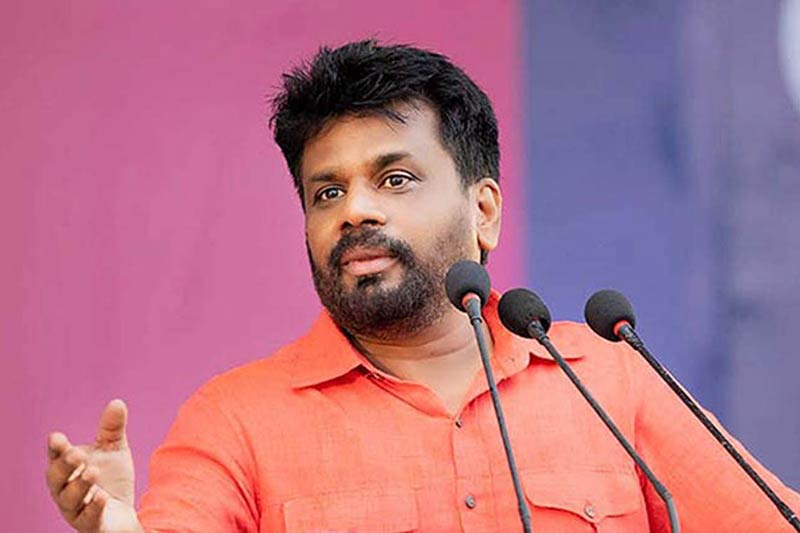
by Jehan Perera
President Donald Trump in the United States is showing how, in a democratic polity, the winner of the people’s mandate can become an unstoppable extreme force. Critics of the NPP government frequently jibe at the government’s economic policy as being a mere continuation of the essential features of the economic policy of former president, Ranil Wickremesinghe. The criticism is that despite the resounding electoral mandates it received, the government is following the IMF prescriptions negotiated by the former president instead of making radical departures from it as promised prior to the elections. The critics themselves do not have alternatives to offer except to assert that during the election campaign the NPP speakers pledged to renegotiate the IMF agreement which they have done only on a very limited basis since coming to power.
There is also another area in which the NPP government is following the example of former President Ranil Wickremesinghe. During his terms of office, both as prime minister and president, Ranil Wickremesinghe ruled with a light touch. He did not utilise the might of the state to intimidate the larger population. During the post-Aragalaya period he did not permit street protests and arrested and detained those who engaged in such protests. At the same time with a minimal use of state power he brought stability to an unstable society. The same rule-with-a-light touch approach holds true of the NPP government that has succeeded the Wickremesinghe government. The difference is that President Anura Kumara Dissanayake has an electoral mandate that President Wickremesinghe did not have in his final stint in power and could use his power to the full like President Trump, but has chosen not to.
At two successive national elections, the NPP obtained the people’s mandate, and at the second one in particular, the parliamentary elections, they won an overwhelming 2/3 majority of seats. With this mandate they could have followed the “shock and awe” tactics that are being seen in the U.S. today under President Donald Trump whose party has won majorities in both the Senate and House of Representatives. The U.S. president has become an unstoppable force and is using his powers to make dramatic changes both within the country and in terms of foreign relations, possibly irreversibly. He wants to make the U.S. as strong, safe and prosperous as possible and with the help of the world’s richest man, Elon Musk, the duo has become seemingly unstoppable in forging ahead at all costs.
EXTREME POWER
The U.S. has rightly been admired in many parts of the world, and especially in democratic countries, for being a model of democratic governance. The concepts of “checks and balances” and “separation of powers” by which one branch of the government restricts the power of the other branches appeared to have reached their highest point in the U.S. But this system does not seem to be working, at least at the present time, due to the popularity of President Trump and his belief in the rightness of his ideas and Elon Musk. The extreme power that can accrue to political leaders who obtain the people’s mandate can best be seen at the present time in the United States. The Trump administration is using the president’s democratic mandate in full measure, though for how long is the question. They have strong popular support within the country, but the problem is they are generating very strong opposition as well, which is dividing the U.S. rather than unifying it.
The challenge for those in the U.S. who think differently, and there are many of them at every level of society, is to find ways to address President Trump’s conviction that he has the right answers to the problems faced by the U.S. which also appears to have convinced the majority of American voters to believe in him. The decisions that President Trump and his team have been making to make the U.S. strong, safe and prosperous include eliminating entire government departments and dismissing employees at the Consumer Financial Protection Bureau (CFPB), Centers for Disease Control and Prevention (CDC) and the Food and Drug Administration (FDA) which were established to protect the more disadvantaged sectors of society. The targets have included USAID which has had consequences for Sri Lanka and many other disadvantaged parts of the world.
Data obtained from the Department of External Resources (ERD) reveal that since 2019, USAID has financed Sri Lankan government projects amounting to Rs. 31 billion. This was done under different presidents and political parties. Projects costing USD 20.4 million were signed during the last year (2019) of the Maithripala Sirisena government. USD 41.9 million was signed during the Gotabaya Rajapaksa government, USD 26 million during the Ranil Wickremesinghe government, and USD 18.1 million so far during the Anura Kumara Dissanayake government. At the time of the funding freeze, there were projects with the Justice Ministry, Finance Ministry, Environment Ministry and the Energy Ministry. This is apart from the support that was being provided to the private sector for business development and to NGOs for social development and good governance work including systems of checks and balances and separation of powers.
MODERATE POLITICS
The challenge for those in Sri Lanka who were beneficiaries of USAID is to find alternative sources of financing for the necessary work they were doing with the USAID funding. Among these was funding in support of improving the legal system, making digital technology available to the court system to improve case management, provision of IT equipment, and training of judges, court staff and members of the Bar Association of Sri Lanka. It also included creating awareness about the importance of government departments delivering their services in an inclusive manner to all citizens requiring their services, and providing opportunities for inter-ethnic business collaboration to strengthen the economy. The government’s NGO Secretariat which has been asked to submit a report on USAID funding needs to find alternative sources of funding for these and give support to those who have lost their USAID funding.
Despite obtaining a mandate that is more impressive at the parliamentary elections than that obtained by President Trump, the government of President Anura Kumara Dissanayake has been more moderate in its efforts to deal with Sri Lanka’s problems, whether in regard to the economy or foreign relations. The NPP government is trying to meet the interests of all sections of society, be they the business community, the impoverished masses, the civil society or the majority and minority ethnic and religious communities. They are trying to balance the needs of the people with the scarce economic resources at their disposal. The NPP government has demanded sacrifice of its own members, in terms of the benefits they receive from their positions, to correspond to the economic hardships that the majority of people face at this time.
The contrast between the governance styles of President Trump in the U.S. and President Dissanayake in Sri Lanka highlights the different paths democratic leaders can take. President Trump is attempting to decisively reshape the U.S. foreign policy, eliminating entire government departments and overwhelming traditional governance structures. The NPP government under President Dissanayake has sought a more balanced, inclusive path by taking steps to address economic challenges and governance issues while maintaining stability. They are being tough where they need to be, such as on the corruption and criminality of the past. They need to be supported as they are showing Sri Lankans and the international community how a government can use its mandate without polarising society and thereby securing the consensus necessary for sustainable change.
-

 Business2 days ago
Business2 days agoSri Lanka’s 1st Culinary Studio opened by The Hungryislander
-

 Sports3 days ago
Sports3 days agoHow Sri Lanka fumbled their Champions Trophy spot
-
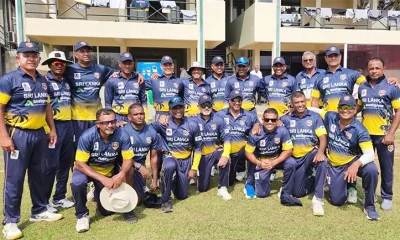
 Sports6 days ago
Sports6 days agoSri Lanka face Australia in Masters World Cup semi-final today
-

 News6 days ago
News6 days agoCourtroom shooting: Police admit serious security lapses
-
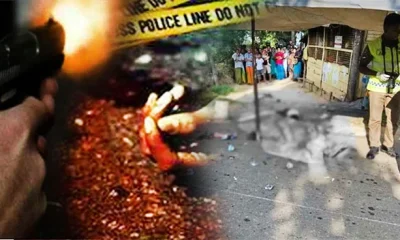
 News6 days ago
News6 days agoUnderworld figure ‘Middeniye Kajja’ and daughter shot dead in contract killing
-
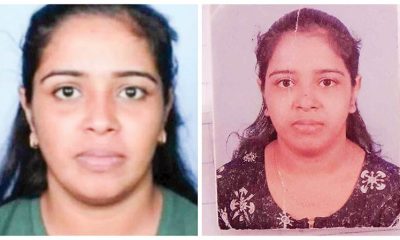
 News5 days ago
News5 days agoKiller made three overseas calls while fleeing
-

 News4 days ago
News4 days agoSC notices Power Minister and several others over FR petition alleging govt. set to incur loss exceeding Rs 3bn due to irregular tender
-

 Features3 days ago
Features3 days agoThe Murder of a Journalist


